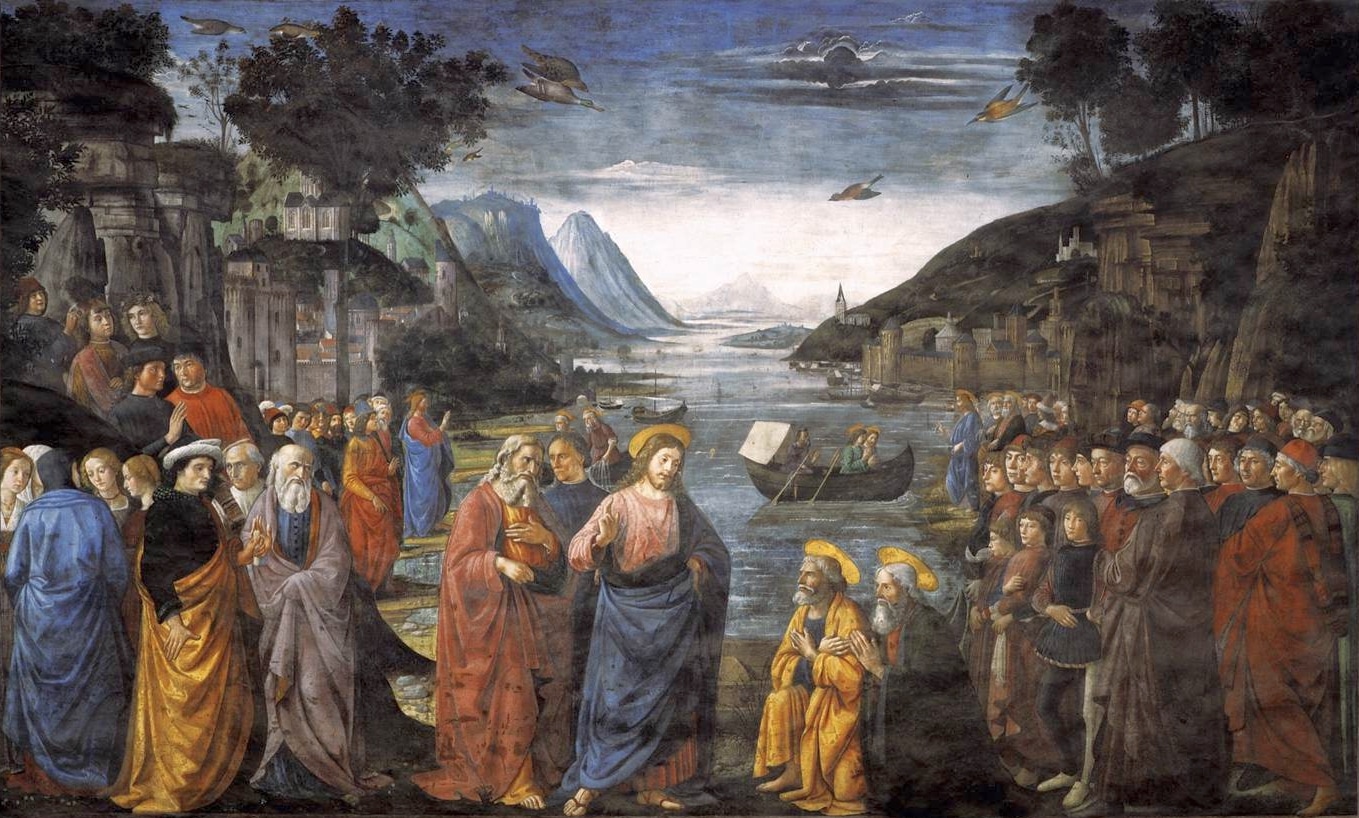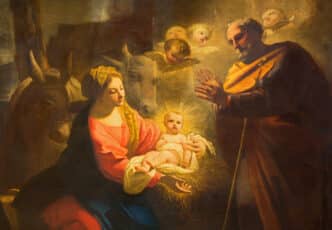If anyone was expecting Jesus to deliver this sermon from a mountain, they got a shock. The first thing we notice in this Sunday’s reading from Luke is this detail: “Jesus came down with the Twelve and stood on a stretch of level ground…”
This isn’t the Sermon on the Mount — though it certainly sounds a lot like it and echoes many of its themes. What we have here is what scholars commonly call “The Sermon on the Plain” — Jesus speaking to his followers on their own terms, on their own level. Here, he was able to look them in the eye and, quite literally, not talk down to them.
After giving us the setting for this sermon, Luke adds one other detail that should make all of us sit up and pay attention. He spoke to “a great crowd of his disciples and a large number of the people from all Judea and Jerusalem and the coastal region of Tyre and Sidon. And raising his eyes toward his disciples he said…”
There was quite a crowd, a diverse bunch of people. But what Jesus had to say at this moment was directed to a very specific audience: His disciples, those who had chosen to follow him. It wasn’t directed to just anyone.
Speaking directly to us
Two thousand years ago, he spoke to those who were seeking to change their lives and who had elected to follow this itinerant preacher from a forgotten town. Today, he’s speaking directly to us. We are his modern-day disciples. For the next few weeks, until the start of Lent, we will hear from this sermon in detail.
Maybe we’ve heard these teachings so often, they don’t shock us or sound remotely radical. But listen closely. Imagine hearing them for the first time.
| February 16, 2025 – Sixth Sunday in Ordinary Time |
|---|
| Jer 17:5-8 Ps 1:1-2, 3, 4 & 6 1 Cor: 12, 16-20 Lk 6:17, 20-26 |
“Blessed are you who are poor,” he begins, “for the kingdom of God is yours.” From there, he goes on to speak to us directly — saying “you” again and again — to bless the hungry, the weeping, the hated. He goes on to express “woe” for the rich, the “filled,” the laughing, those who are praised.
His words undoubtedly stunned his first followers.
But what about us?
What do we hear when Christ turns our expectations upside down and gives us a new way of thinking about what it means to be “blessed?” Do we realize what he is saying, what he is asking us to do?
The Gospel readings from The Sermon on the Plain are provocative and potent — calling on us to think differently about love, about mercy, about God’s expectations and our own. We are exhorted to love those who hate us, to turn the other cheek, to give to everyone and to hold nothing back.
It’s worth remembering: In this moment, Jesus doesn’t speak simply as a teacher to his students, offering lessons from on high.
He’s speaking as one of us, at eye level. His teachings are, in a literal sense, grounded. He speaks as someone who understands deeply what it is to love, to give, to hunger, to weep. To quote a popular ad campaign, he is telling his followers that “he gets us.”
And the question we need to ask ourselves across the next three weeks is: Do we get him? Are we truly listening to what he has to say?
In these passages from Luke’s Gospel, we hear once again not only the depth and breadth of Christ’s compassion, but also the bracing reality that what he had to say — then and now — is boldly countercultural. It’s not surprising that many who heard these words found them hard to take and difficult to absorb.
Maybe we’ve heard them so often, we take them for granted. We shouldn’t. These readings, together, form a powerful final lesson before Lent, words to carry with us into the desert and into life.








